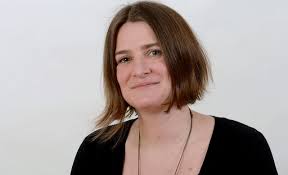
Déborah Bourc’his
Institut Curie
France
EMBO Workshop
Places are still available, follow this link to register. Abstract submissions for oral and poster presentations are, however, no longer possible.
EMBL is committed to sharing research advances and sustaining scientific interaction throughout the coronavirus pandemic. We are delighted to announce that this conference is going virtual and invite you to join us online.
This conference is assembling world-leading experts from diverse fields including genomics, epigenetics, structural biology, developmental biology, immunology, cancer biology and neurobiology, to discuss the broad impacts of TEs on organismal biology.
This conference provides a venue for cross-disciplinary discussions, with the goal of catalysing inter-disciplinary collaborations to address emerging questions in these scientific fields.
Although often disparaged as “junk” DNA, it is now undeniable that transposable element (TE) activity has significantly shaped the structure and function of all genomes, ranging from bacteria to humans. TEs are major drivers of genetic diversity and contribute to human disease. Remarkably, recent research has shown that TE-derived sequences also can be co-opted by the host to play important roles in gene expression, early development, immunity, neuronal diversification, and, perhaps, aging.
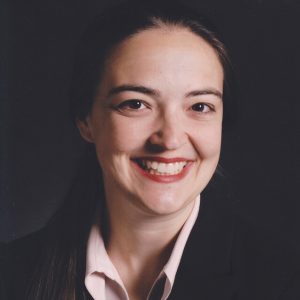
Dana-Farber Cancer Institute
USA
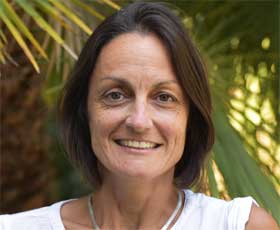
Institut de Génétique Humaine, CNRS, Université de Montpellier
France

Institut de Biologie, École Normale Supérieure
France
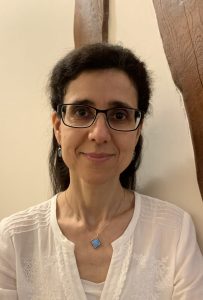
CNRS
France

Inserm, CNRS, Université Côte d’Azur
France
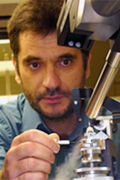
National Institute of Diabetes and Digestive and Kidney Diseases, National Institutes of Health
USA

Cornell University
USA
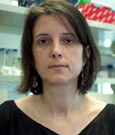
Institute of Evolutionary Biology, CSIC-UPF
Spain
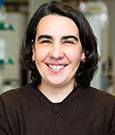
Fundação Calouste Gulbenkian
Portugal

Max Delbrück Center for Molecular Medicine
Germany
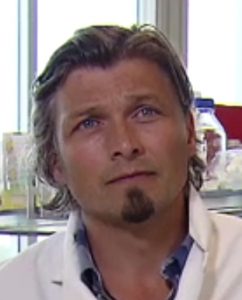
Swammerdam Institute for Life Sciences, University of Amsterdam
The Netherlands
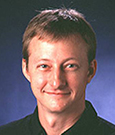
University of California, Los Angeles, Howard Hughes Medical Institute
USA

Institute of Molecular Biology
Germany
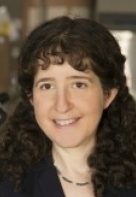
Columbia University
USA

Inserm, CNRS, Université Paris Diderot, Sorbonne Paris Cité, Hôpital St. Louis
France
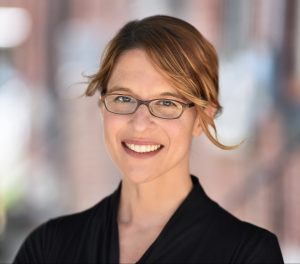
University of Pennsylvania
USA

University of California, San Francisco
USA

Fred Hutchinson Cancer Research Center
USA

Queen Mary University of London
UK
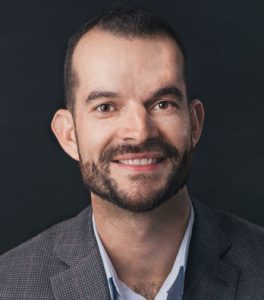
Columbia University
USA

École Polytechnique Fédérale de Lausanne
Switzerland

University College London Queen Square Institute of Neurology
UK
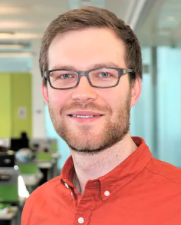
The University of Edinburgh
UK
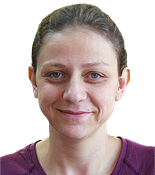
University of Geneva
Switzerland
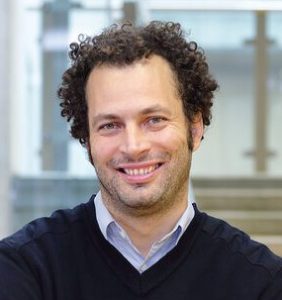
IMBA – Institute of Molecular Biotechnology
Austria
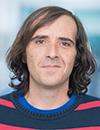
Institute of Genetics and Cancer, The University of Edinburgh
UK

EMBL Heidelberg
Germany

EMBL Heidelberg
Germany
Got something to say? Tweet it! #EMBOMobileGene
To find out the equivalent time zone in your location, enter Berlin, the programme time and date along with your city into the Time Zone Converter.
| Time (Europe/Berlin) | Speaker |
|---|---|
| 14:00-14:10 | Opening remarks AVAILABLE ON DEMAND AFTER LIVE STREAM |
| Session 1 – Genomics and evolution (part 1) Chairs: John Moran and Sandra Richardson | |
| 14:10-14:40 | Transposable elements as catalysts of regulatory evolution Cedric Feschotte – Cornell University, USA AVAILABLE ON DEMAND AFTER LIVE STREAM |
| 14:40-15:00 | Genome evolution and the control of transposable elements during germline development in Drosophila Felipe Karam Teixeira – University of Cambridge, UK AVAILABLE ON DEMAND AFTER LIVE STREAM |
| 15:00-15:30 | Evolution of commensal Escherichia coli strains in the mouse gut Isabel Gordo – Fundação Calouste Gulbenkian, Portugal |
| 15:30-15:45 | Break |
| 15:45-16:15 | Insights from CLIP on protein-RNA interactions at sequences derived from transposable elements Jernej Ule – University College London Queen Square Institute of Neurology, UK AVAILABLE ON DEMAND AFTER LIVE STREAM |
| 16:15-16:35 | Novel clades of Penelope-like retrotransposable elements enlarge the genomes of aquatic plants and animals Irina Arkhipova – Marine Biological Laboratory, USA AVAILABLE ON DEMAND AFTER LIVE STREAM |
| 16:35-17:05 | Two GTSF paralogs implicated in piRNA biogenesis in Bombyx mori René Ketting – Institute of Molecular Biology, Germany AVAILABLE ON DEMAND AFTER LIVE STREAM |
| 17:05-17:35 | MBD5 and MBD6 couple DNA methylation to gene silencing through the J-domain protein SILENZIO Steve Jacobsen – University of California, Los Angeles, Howard Hughes Medical Institute, USA AVAILABLE ON DEMAND AFTER LIVE STREAM |
| 17:35-17:50 | Poster flash talk presentations 1 by: 1. Constance Ciaudo, ETH Zurich, Switzerland 2. Juliane Glaser, Max Planck Institute for Molecular Genetics, Germany 3. Ophélie d’Udekem, UCLouvain, Belgium 4. Christopher Grochowski, Baylor College of Medicine, USA |
| 17:50-18:20 | Meet the speakers session 1 (part 1) with: Cedric Feschotte, Isabel Gordo, Jernej Ule, René Ketting, Steve Jacobsen, Felipe Karam Teixeira and Irina Arkhipova |
| 18:20-18:35 | Break |
| 18:35-19:35 | Informal topic discussion in breakout rooms on the following topics: 1. How emerging sequencing technologies can inform us on transposable element biology. With Sandra Richardson, Francisco Sanchez and John Moran 2. How genome defense systems impact evolution of gene expression systems. With Hiten Madhani, Mia Levine, Alex Bortvin, Astrid Haase and Julius Brennecke 3. The impact of sequence-based and structural methods in advancing mechanistic mobile DNA biology. With Liz Kellogg, Gera Smyshlyaev, Joe Peters, Cedric Feschotte (TBC) and Orsolya Barabas 4. Novel approaches to uncover the impact of Transposable Elements With Helen Rowe, Sara R Heras, Julianne Glaser, Manvendra Singh and Jose Luis Garcia-Perez |
| 19:35-20:35 | Poster session 1 (live chats and video calls with poster presenters with last names A-F) |
| Time (Europe/Berlin) | Speaker |
|---|---|
| 13:00-13:45 | Social programme: speed networking |
| Session 1 – Genomics and evolution (part 2) Chairs: John Moran and Sandra Richardson | |
| 14:00-14:30 | Transposable elements contribute to gene expression variation in Drosophila melanogaster immune-stress response Josefa González – Institute of Evolutionary Biology, CSIC-UPF, Spain AVAILABLE ON DEMAND AFTER LIVE STREAM |
| 14:30-14:50 | H3k9 and h3k27 methylations are differently regulated by polycomb-associated proteins and have distinct functions in programmed genome rearrangement of tetrahymena Kazufumi Mochizuki – Institut de Génétique Humaine, CNRS, France AVAILABLE ON DEMAND AFTER LIVE STREAM |
| 14:50-15:20 | TE mobilization: A major and tunable source of heritable variation in Arabidopsis thaliana Vincent Colot – Institut de Biologie, École Normale Supérieure, France AVAILABLE ON DEMAND AFTER LIVE STREAM |
| 15:20-15:35 | Break |
| 15:35-16:05 | Transposable elements, their polydactyl controllers and the ups and downs of human speciation Didier Trono – École Polytechnique Fédérale de Lausanne, Switzerland AVAILABLE ON DEMAND AFTER LIVE STREAM |
| 16:05-16:25 | Transposons co-option in the Caenorhabditis germline regulatory network Francesco Nicola Carelli – University of Cambridge, UK AVAILABLE ON DEMAND AFTER LIVE STREAM |
| 16:25-16:40 | Poster flash talk presentations 2 by: 1. Astrid Haase, National Institute of Diabetes and Digestive and Kidney Diseases, USA 2. Vivien Horvath, Stem Cell Center, Lund University, Sweden 3. Elizabeth Kellogg, Cornell University, USA 4. Henry Levin, National Institutes of Health, USA |
| 16:40-17:10 | Meet the speakers session 1 (part 2) with: Josefa González, Vincent Colot, Didier Trono, Kazufumi Mochizuki and Francesco Nicola Carelli |
| 17:10-18:10 | Poster session 2 (live chats and video calls with poster presenters with last names G-L) |
| Session 2 – Transposon regulation (part 1) Chairs: Julius Brennecke and Astrid Haase | |
| 18:10-19:00 | Keynote: Marking retrotransposons, from DNA to RNA methylation Déborah Bourc’his – Institut Curie, France AVAILABLE ON DEMAND AFTER LIVE STREAM |
| 19:00-19:30 | Evolution of scrambled genome architectures Laura Landweber – Columbia University, USA AVAILABLE ON DEMAND AFTER LIVE STREAM |
| 19:30-19:50 | Structure of a restriction factor of the S. cerevisiae transposon Ty1 reveals the molecular basis of transposition copy number control Sean Beckwith – University of Georgia, USA AVAILABLE ON DEMAND AFTER LIVE STREAM |
| 19:50-20:05 | Break |
| 20:05-20:35 | Intra-genomic conflict shapes Drosophila telomere biology Mia Levine – University of Pennsylvania, USA AVAILABLE ON DEMAND AFTER LIVE STREAM |
| 20:35-20:55 | Analysis of intercellular transmission of retrotransposons in drosophila melanogaster ovaries Marianne Yoth – iGReD, France AVAILABLE ON DEMAND AFTER LIVE STREAM |
| 20:55-21:25 | Epigenetic evolution over geological timescales Hiten Madhani – University of California, San Francisco, USA AVAILABLE ON DEMAND AFTER LIVE STREAM |
| 21:25-22:00 | Meet the speakers session 2 (part 1) with: Déborah Bourc’his, Laura Landweber, Mia Levine, Hiten Madhani, Sean Beckwith and Marianne Yoth |
| Time (Europe/Berlin) | Speaker |
|---|---|
| Session 2 – Transposon regulation (part 2) Chairs: Julius Brennecke and Astrid Haase | |
| 14:00-14:30 | SPOCD1 is an essential executor of piRNA-directed de novo DNA methylation Ansgar Zoch – The University of Edinburgh, UK AVAILABLE ON DEMAND AFTER LIVE STREAM |
| 14:30-14:50 | Morc3 silences endogenous retroviruses by enabling Daxx-mediated histone H3.3 incorporation Sophia Groh – Ludwig Maximilians University of Munich, Germany AVAILABLE ON DEMAND AFTER LIVE STREAM |
| 14:50-15:10 | The nuclear endoribonuclease SLFN9 enforces retrotransposon silencing Mathilde Gauchier – National Institutes of Health, USA AVAILABLE ON DEMAND AFTER LIVE STREAM |
| 15:10-15:25 | Break |
| 15:25-15:55 | Transposable element biology: Expression and integration in the host genome Séverine Chambeyron – Institut de Génétique Humaine, CNRS, Université de Montpellier, France AVAILABLE ON DEMAND AFTER LIVE STREAM |
| 15:55-16:10 | Poster flash talk presentations 3 by: 1. Derek Rookhuizen, Insitut Curie, France 2. Miriam Merenciano, Institute of Evolutionary Biology (CSIC-UPF), Spain 3. Irma Querques, University of Zurich, Switzerland 4. Wayo Matsushima, École Polytechnique Fédérale de Lausanne, Switzerland |
| 16:10-16:40 | Meet the speakers session 2 (part 2) with: Ansgar Zoch, Séverine Chambeyron, Sophia Groh and Mathilde Gauchier |
| 16:40-17:25 | Panel discussion on provocative emerging research areas on Mobile DNA Panel members: Deborah Bourc’his Josefa Gonzalez David Schatz Oliver Weichenrieder |
| 17:25-18:25 | Poster session 3 (live chats and video calls with poster presenters with last names M-R) |
| Session 3 – Transposition mechanisms (part 1) Chairs: Orsolya Barabas and Joseph Peters | |
| 18:25-19:15 | Keynote lecture: A structural journey through the evolution of the RAG transposase/recombinase David Schatz – Yale School of Medicine, USA AVAILABLE ON DEMAND AFTER LIVE STREAM |
| 19:15-19:45 | Control of Ty1 retrotransposition from transcription to integration Pascale Lesage – Inserm, CNRS, Université Paris Diderot, Sorbonne Paris Cité, Hôpital St. Louis, France AVAILABLE ON DEMAND AFTER LIVE STREAM |
| 19:45-20:05 | Structural basis for DNA targeting by the Tn7 transposon Alba Guarne – McGill University, Canada AVAILABLE ON DEMAND AFTER LIVE STREAM |
| 20:05-20:20 | Break |
| 20:20-20:40 | Cryo-EM studies of an antibiotic resistance gene carrying transposon: Insights into the excision of GIsul2 Buse Isbilir – EMBL Heidelberg, Germany AVAILABLE ON DEMAND AFTER LIVE STREAM |
| 20:40-21:10 | Three domains, two catalytic Tyrosines and an active monomer: The Cryo-EM structure of a Helitron transposase Fred Dyda – National Institute of Diabetes and Digestive and Kidney Diseases, National Institutes of Health, USA AVAILABLE ON DEMAND AFTER LIVE STREAM |
| 21:10-21:40 | Meet the speakers session 3 (part 1) with: David Schatz, Pascale Lesage, Fred Dyda, Alba Guarne and Buse Isbilir |
| 21:40-22:10 | Live Living room concert with Lazy Fur |
| 22:10-22:40 | Social programme: bar mixer |
| Time (Europe/Berlin) | Speaker |
|---|---|
| 13:00-13:45 | Meet the editors session with: Esther Schnapp – EMBO Reports Carolina Perdigoto – Nature Structural & Molecular Biology |
| Session 3 – Transposition mechanisms (part 2) Chairs: Orsolya Barabas and Joseph Peters | |
| 14:00-14:30 | Human LINE-1 DNA methylation is cell-type-, family- and locus-specific and is not predictive of expression Gael Cristofari – Inserm, CNRS, Université Côte d’Azur, France AVAILABLE ON DEMAND AFTER LIVE STREAM |
| 14:30-14:50 | Identification of an integrase-independent pathway of retrotransposition Feng Li – National Institutes of Health, USA AVAILABLE ON DEMAND AFTER LIVE STREAM |
| 14:50-15:20 | Bacterial group II intron retrotransposons: Diversity is the keyword Maria Costa – CNRS, France |
| 15:20-15:35 | Poster flash talk presentations 4 by: 1. Sandra Duharcourt, Institut Jacques Monod/CNRS, France 2. Emilia Skirmuntt, University of Oxford, UK 3. Oliver Weichenrieder, Max Planck Institute for Developmental Biology, Germany 4. Manvendra Singh, Cornell University, USA |
| 15:35-16:05 | Meet the speakers session 3 (part 2) with: Gael Cristofari, Maria Costa and Feng Li |
| 16:05-17:05 | Poster session 4 (live chats and video calls with poster presenters with last names S-Z) |
| Session 4 – Physiological impacts Chairs: Jose L. Garcia-Perez and Juliane Glaser | |
| 17:05-17:35 | Transposon-encoded CRISPR–Cas systems direct RNA-guided DNA integration Samuel Sternberg – Columbia University, USA AVAILABLE ON DEMAND AFTER LIVE STREAM |
| 17:35-17:55 | Somatic LINE retrotransposition in motorneurons Thomas Widmann – GENYO – Centre for Genomics and Oncological Research, Spain AVAILABLE ON DEMAND AFTER LIVE STREAM |
| 17:55-18:25 | Epigenetic regulation of LINE-1 elements by the HUSH complex and physiological impacts Helen Rowe – Queen Mary University of London, UK AVAILABLE ON DEMAND AFTER LIVE STREAM |
| 18:25-18:40 | Break |
| 18:40-19:10 | Structural variation in transposable elements as hidden genetic modifiers in human disease-risk loci Frank Jacobs – Swammerdam Institute for Life Sciences, University of Amsterdam, The Netherlands |
| 19:10-19:30 | RNA m6A modification orchestrates a LINE-1–host interaction that facilitates retrotransposition and contributes to long gene vulnerability Ruoyu Wang – The University of Texas Health Science Center at Houston, USA AVAILABLE ON DEMAND AFTER LIVE STREAM |
| 19:30-20:00 | Co-opted functions of transposble-derived sequences in humans Zsuzsanna Izsvak – Max Delbrück Center for Molecular Medicine, Germany AVAILABLE ON DEMAND AFTER LIVE STREAM |
| 20:00-20:15 | Break |
| 20:15-20:45 | LINE-1 in cancer biology Kathleen Burns – Dana-Farber Cancer Institute, USA AVAILABLE ON DEMAND AFTER LIVE STREAM |
| 20:45-21:05 | PGBD5 DNA transposase induces DNA damage in the brain and is required for its normal development Luz Jubierre Zapater – Memorial Sloan Kettering Cancer Center, USA AVAILABLE ON DEMAND AFTER LIVE STREAM |
| 21:05-21:35 | Evolutionary landscapes in host-virus arms races Harmit Malik – Fred Hutchinson Cancer Research Center, USA AVAILABLE ON DEMAND AFTER LIVE STREAM |
| 21:35-21:45 | Closing remarks AVAILABLE ON DEMAND AFTER LIVE STREAM |
| 21:45-22:15 | Meet the speakers session 4 with: Samuel Sternberg, Helen Rowe, Frank Jacobs, Zsuzsanna Izsvak, Kathleen Burns, Harmit Malik, Thomas Widmann, Ruoyu Wang and Luz Jubierre Zapater |
Registration Fees (include access to all of the talks, online group discussions, and help us cover our costs to run the event):
| Academia | 190 Euro |
| PhD Student | 140 Euro |
| Industry | 240 Euro |
| EMBL Staff | Intranet access |
Accredited journalists may be eligible to register for a reduced press rate or in some cases for complimentary registration. Registrants may be required to provide accreditation or equivalent proof of press membership after registration. Please contact Lisa Trinh for more information.
Registration will be on a first-come first-served basis. Your place can only be confirmed after payment of the registration fee.
Types of payments accepted are international bank transfers (only up to 8 weeks before event) and credit card payments.
Only registered participants are eligible to submit an abstract. We only accept online abstract submissions.
After registration you can submit your abstract via a separate link that will be provided in the email confirmation. Alternatively, you can access the link on the confirmation page directly after registering. The same login credentials are used for both processes.
Please note:
Title: The title should not exceed 20 words. Only the first word of the title should start with a capital letter and the rest of the title should be in lowercase.
Authors and Affiliations: Please fill in the author’s details as requested in the online form. The compulsory details are: First Name, Last Name, Organisation Name (Affiliation or Company), Country and Email. Mark only one author as the role of First author and please don’t forget to indicate who will be presenting. The order of the authors will be listed as follows: First Author, Co-First Author (alphabetically if multiple), co-author(s) (in the order added by the submitter).
Presentation Types: When submitting your abstract, you can apply for an oral or poster presentation. A selection process will take place with the results announced 2-3 weeks after the abstract submission deadline.
Please check our FAQs pages for further information on how to submit an abstract.
All academic and student registrants are invited to apply for a registration fee waiver, provided by the EMBL Advanced Training Centre Corporate Partnership Programme and EMBO. The registration fee waiver covers the registration sum that you have paid to attend the meeting. Conference participants are not required to pre-pay the registration fee to be selected for a fee waiver for a virtual meeting. If you have already paid the registration fee and are awarded a fee waiver, it will be reimbursed after the meeting. Course participants are required to pay the course fee in advance, which will then be reimbursed after the recipient has attended the course.
For participants and speakers with childcare responsibilities there is the possibility to apply for a grant, provided by the EMBL Advanced Training Centre Corporate Partnership Programme and EMBO, to offset childcare costs incurred when participating at a virtual event. Eligible costs include fees for a babysitter or childcare facility or travel costs for a care giver. Please note that priority will be given to early stage researchers. Costs will be reimbursed after the meeting only once a reimbursement form and original receipts have been received. Attendance at the event is required in order to be eligible to receive the reimbursement. In order to apply for this grant, you must be registered by the abstract submission deadline.
Applies to selected courses only. Availability will be indicated during the abstract or motivation letter submission process.
This grant covers costs related to your attendance to the course (registration, travel and accommodation costs). The grant is restricted to PhD students and postdocs who conduct basic biomedical research.
Whether you are eligible to apply for a travel grant, depends on when you received your university entrance qualification (e.g. Abitur, A-Levels, High School Diploma, Final State Examination):
– for PhD and MD students, as well as graduates, the university entrance qualification must not have been obtained more than 11 years ago at the time of the envisaged course
– for postdocs, the university entrance qualification must not have been obtained more than 13 years ago at the time of the envisaged course
Applications for financial assistance can be submitted via the submission portal* (for the submission of abstracts for conferences or the submission of motivation letters for courses) by completing the Financial Assistance Application Section (underneath the section for entering abstract/motivation letter information). The link to the portal can be found in the registration confirmation email that you will receive after registering for the conference or course.
For conferences, if you are not submitting an abstract, you can still apply for financial assistance in the submission portal by following the instructions here. Note that priority will be given to those submitting an abstract to present at the conference. In your application you will be asked to answer questions regarding your motivation for applying, and, for registration fee waivers, the reasons why your lab cannot fund your attendance and how your attendance will make a difference to your career. Application for financial support will not affect the outcome of your registration application.
*For some events, applications for Childcare Grants will still be done by email. Information about the grant will be sent out shortly after the abstract/motivation letter deadline. Please contact the event Conference Officer if you have any questions.
The scientific organisers will select the recipients of registration fee waivers during the abstract selection process for conferences and the participant selection process for courses. Results will be announced approximately 3 – 4 weeks before the event start date. Selection results do not impact your admission to the meeting. Registration fee waiver selection is based on your current work or study location, your motivation for applying, the reasons for needing financial support and the impact this event will have on your career. Childcare grants are allocated based on career stage, with priority given to early stage researchers.
A list of external funding opportunities can be found here, and information on attending a conference as an event reporter here.
For further information about financial assistance please refer to the FAQ page.
Please do:
Please don’t:
Additional information can be found in our Code of Conduct.
It is important to stay healthy and move around, especially when you are attending an event virtually. We have put together a few coffee break stretches and yoga videos in the events Slack workspace for you to enjoy during the event.
Questions during and after the talks can be asked in live streaming platform. The chair moderates the questions and shares them with the speaker. If time runs out or you think of a question later, you can use Slack to ask your questions in the dedicated session channels or via direct message.
The programme is planned based on Central European Summer Time (CEST), unless otherwise stated. As many virtual participants are attending from around the world, we do our best to accomodate as many timezones as possible when creating the programme. Please take your time zone into consideration when planning your attendance.
We are using a virtual event platform for this conference. More information about the platform will be shared ahead of the conference.
Event Sponsors:
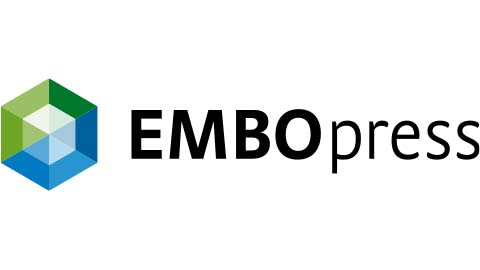
Media Partners
EMBO Journal, an EMBO Press journal
Open Biology, a Royal Society journal
International Union of Biochemistry and Molecular Biology
Sponsorship Opportunities
We offer a variety of event sponsoring possibilities, with the flexibility to select a set sponsorship package or combine individual sponsorship options to suit your event budget. Discounts are available for companies sponsoring multiple events at EMBL Heidelberg. View other conferences, or contact sponsorship@embl.de for further information.
If you are interested in becoming a media partner of this event, please visit our media partnerships webpage.
EMBL wishes to warn sponsors of EMBL conferences and courses of fraudulent schemes purporting to offer sponsorship opportunities on behalf of EMBL or affiliated with EMBL officials. One current scam campaign of which we are aware is conducted using the name ‘Judy Eastman’ (judy@gopcontact.a2hosted.com) and entails approaches to sponsors offering sponsorship opportunities on EMBL’s behalf. Please be kindly advised that all relevant communication regarding sponsorship of EMBL conferences, symposia and courses is handled by EMBL directly and is sent from an official EMBL account. EMBL does not work with any external providers on sponsorship acquisition.
Please also note that:
Suspicious communications purportedly from, for or on behalf of EMBL should be reported to EMBL at the following email address sponsoring@embl.de.

Date: 29 Aug - 1 Sep 2021
Location: Virtual
Deadline(s):
Abstract submission: Closed
Registration: Closed
Organisers:
Contact: Diah Yulianti